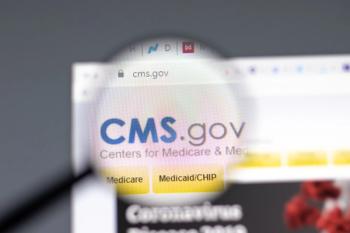
Payment Systems Must Realign Accountability, Capability for True Population Health Gains, AJAC® Study Authors Say
Social determinants of health, including stress, social support and environmental hazards, among other factors, impact the lives of patients beyond the clinic door. It is unclear which health system stakeholders should own the responsibilities of improving these health-related measures, yet US payment systems are moving to hold individual providers accountable for associated health improvements. This represents a misalignment of accountability and capability, write two researchers in a viewpoint from the current issue of The American Journal of Accountable Care®.
(CRANBURY, N.J.) - The fact that individual providers are being held accountable for population-level health outcomes over which they have limited control has been underappreciated by the policy makers formulating Medicare’s value-based payment systems. This is resulting in a misalignment of accountability and capability that defers population health improvements, according
Adam S. Wilk, PhD, of the Rollins School of Public Health at Emory University, and Sanjula Jain, PhD, of The Health Management Academy, note that Medicare’s Merit-based Incentive Payment System gives too little consideration to the impact of social determinants of health on population health outcomes. Using the examples of major depressive disorder and antidepressant medication management as a lens, the authors write that payment reform efforts are too imprecise to drive significant improvements in population health care delivery when healthcare providers act independently. These efforts will only be effective if medical service providers can better coordinate and integrate with nonmedical service providers.
“Everyone aspires to well-coordinated, population health—oriented systems of care in our communities,” Wilk says. “But we are asking a lot of individual clinicians or even most larger provider organizations when we hold them accountable for improving outcomes that can only really be addressed through well-implemented public health and social services programs. Some of the payment reform initiatives underway underappreciate the scope of the interventions needed to improve population health.”
The authors call for a “new culture of shared accountability,” one in which individual providers and their organizations understand and accept their roles in population health improvement and work to support each other in those roles. At the individual clinician level, for instance, this means refocusing quality measures on services that physicians actually provide, like depression screenings, rather than outcomes further downstream, like antidepressant medication management. Additionally, there must be collaboration and commitment among healthcare organizations and community partners, including social service providers, and payment models that reward providers who make these efforts.
“Evaluation throughout these efforts is essential for sustaining and expanding on these efforts too,” says Wilk. “When a community figures out how healthcare organizations can engage in these relationships effectively and can demonstrate rigorously how it works, that will sustain buy-in among payers locally and also give other communities a chance to learn and adopt best practices.”
A key challenge of kick-starting such population health care delivery reform is that realigned payment models that encourage relationships with social services providers, for example, would threaten the funding stream of traditional healthcare institutions.
“The viewpoint authored by Drs Wilk and Jain does a nice job of highlighting the challenges of reforming the healthcare payment system to reward value rather than volume,” said Dennis P. Scanlon, PhD, editor-in-chief of AJAC and distinguished professor of health policy and administration, and director of the Center for Health Care Policy Research, Pennsylvania State University. “As the authors point out, while some of the changes implemented by the federal government in a move away from the Sustainable Growth Rate may be directionally appropriate, there is still the need to recognize that the health of a population is impacted by much more than the care provided by physicians.”
Wilk gives more details about this issue
For the full March issue,
About The American Journal of Managed Care®
The American Journal of Managed Care® (AJMC®) is a peer-reviewed, Medline-indexed journal that keeps readers on the forefront of health policy by publishing research relevant to industry decision makers as they work to promote the efficient delivery of high-quality care. AJMC.com is the essential website for managed care professionals, distributing industry updates daily to leading stakeholders. Other titles in the AJMC® family include The American Journal of Accountable Care® and two evidence-based series, Evidence-Based Oncology™ and Evidence-Based Diabetes Management™. These comprehensive offerings bring together stakeholder views from payers, providers, policymakers and other industry leaders in managed care. To order reprints of articles appearing in AJMC® publications, please contact Gil Hernandez at 609-716-7777, ext. 139.
AJMC® Media Contacts
Alexandra Ventura, 609-716-7777, ext. 121
John Patricolo, 609-325-4630, ext. 133
Newsletter
Stay ahead of policy, cost, and value—subscribe to AJMC for expert insights at the intersection of clinical care and health economics.









